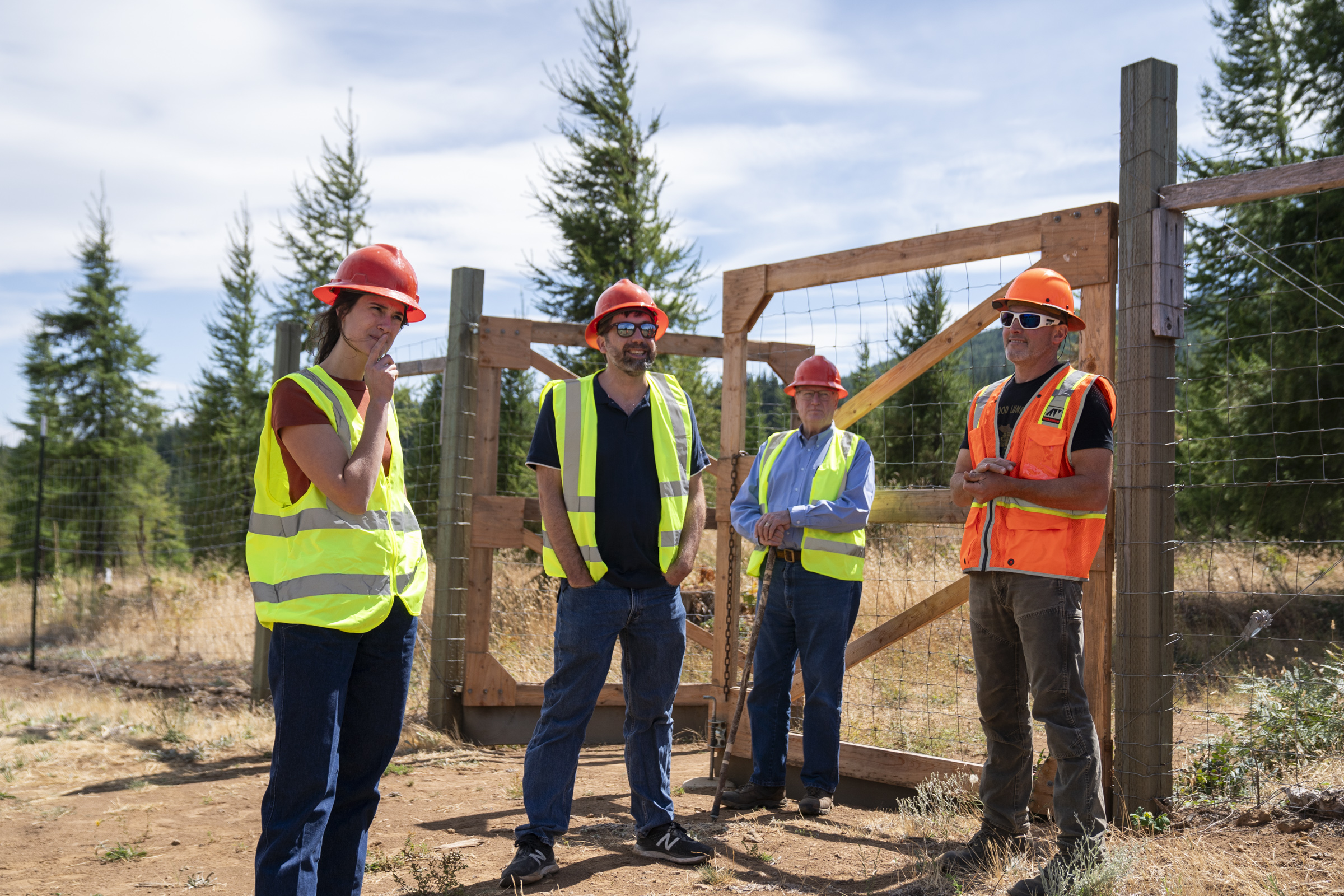Gluesenkamp Perez, Rouzer Introduce Bipartisan Bill to Strengthen Forestry Career Pathways

Today, Rep. Marie Gluesenkamp Perez (WA-03) and Reps. David Rouzer (NC-07) introduced the bipartisan Jobs in the Woods Act, which will connect young people with rewarding careers and training in forestry. The bill would create a grant program for nonprofit organizations, state governments, and colleges to utilize for workforce training in forestry-related fields – helping prepare students for jobs in the U.S. Forest Service and in the timber industry.
Inspired by the Forest Youth Success program in Skamania County, the Jobs in the Woods Act will provide workforce training opportunities to inspire the next generation of forestry workers. With most of the forest manufacturing industry located in rural areas, this bill will give individuals the opportunity to learn skills that can serve them and their communities.
The Jobs in the Woods Act will:
- Create education programs for states, nonprofits, and colleges through grants of $500,000 to $2,000,000
- Create the programs in rural and low-income areas to spur economic development, bringing thousands of dollars of investments into rural communities
- Create a pool of talented, trained, and qualified applicants to fill job openings in forestry-related industries
- Partner with programs that have proven to help students find forestry industry jobs and programs that engage with their local communities
“Our timber communities want to be self-sufficient, and our kids shouldn’t feel like they need to move away from home to do something of value,” said Rep. Gluesenkamp Perez. “Our bipartisan Jobs in the Woods Act will honor Southwest Washington’s timber heritage by setting our next generation up with the skills they need to work in our woods.”
“North Carolina’s forestry industry is a driving force for our rural economy. The Jobs in the Woods Act supports the hardworking men and women who keep our forests healthy and our rural economies strong,” said Rep. Rouzer. “This bill invests in the next generation of skilled workers, revitalizing our communities, and ensuring America’s forestry industry remains competitive for decades to come.”
“The American Forest Resource Council supports the Jobs in the Woods Act as an investment in careers essential to restoring forest health, reducing wildfire risks, and creating family-wage jobs. By establishing regional training hubs and career pathways, this bipartisan bill will expand opportunities in public land management and the timber industry – empowering more young adults to stay and work in the rural communities they call home,” said AFRC President/CEO Travis Joseph. “A skilled workforce in both the woods and mills is critical to meeting the nation’s needs for healthier forests through active forest management and lumber made here in the USA. We urge Congress to pass the Jobs in the Woods Act and help grow the next generation of forestry professionals.”
“We applaud Congresswoman Gluesenkamp Perez, Congressman Thompson, and Congressman Rouzer for introducing the Jobs in the Woods Act. This bipartisan legislation will help address critical workforce shortages by equipping a new generation with the skills needed to manage and sustain our working forests. By supporting training programs for forestry careers, this bill is a direct investment in rural communities, landowners, and the long-term health of our forests,” said Craig Anderson, Vice President of Government Affairs of the Forest Landowners Association. “We thank these Members for championing meaningful solutions for the forestry sector.”
“The forest products industry in North Carolina contributes approximately $40.5 billion to our state’s economy annually. That impact would not be possible without the 5,000 men and women working in our state’s logging sector. Their hard work bridges the gap between standing timber and wood processing facilities that make many of the products our society depends on every day,” said John Hatcher. Executive Director of the North Carolina Forestry Association. “To prepare the next generation of forestry leaders, we must continue to provide resources that foster these career pathways so that we can further strengthen our economy in NC’s forestry sector and beyond”
The forest products industry is one of the U.S. economy’s largest manufacturing sectors, supporting over 930,000 families and contributing $295 billion annually. Consumers rely on loggers, haulers, pulp and paper mills, paper packaging plants, and lumber facilities to manufacture a variety of everyday products.
This year, Rep. Gluesenkamp Perez urged the Administration to refrain from cuts to federal workers that could negatively impact timber production, wildfire readiness, and recreation in Southwest Washington. Following the President’s Executive Order to increase domestic lumber production on federal lands, Rep. Gluesenkamp Perez expressed support for an approach that prioritizes small, independent logging, trucking, and mill operators.
Earlier this year, Rep. Gluesenkamp Perez’s provisions were signed into law to extend eligibility for the Forest Service’s Good Neighbor Authority (GNA) for federal forest restoration and management projects to Tribes and counties to increase opportunities for cross-boundary restoration. In March, she introduced the bipartisan Community Wood Facilities Assistance Act to improve markets for forest products.
Full text of the legislation is available here.
Rep. Gluesenkamp Perez previously introduced the legislation in the 118th Congress.
The Jobs in the Woods Act is supported by the Forest Resources Association, American Forest Resource Council, American Forest and Paper Association, National Association of State Foresters, American Forest Foundation, American Loggers Council, American Wood Council, National Alliance of Forest Owners, National Hardwood Lumber Association, National Wooden Pallet and Container Association, National Wood Flooring Association, National Woodland Owners Association, Association of Consulting Foresters, Composite Panel Association, Decorative Hardwoods Association, Federal Forest Resource Coalition, Forest Landowners Association, Forest Workforce Training Institute, Hardwood Federation, Maple Flooring Manufacturers Association, Society of American Foresters, Railway Tie Association, Sustainable Forestry Initiative, Western Wood Preservers Institute, Washington Forest Protection Association, and North Carolina Forestry Association.